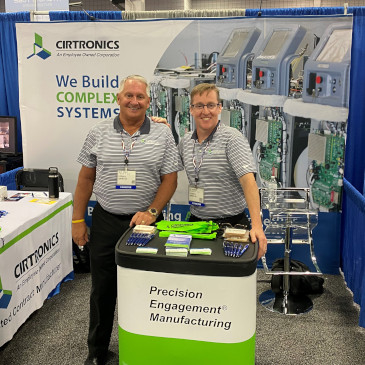I still remember the frustration of watching promising deals slip through our fingers back in 2018. We had the products, the marketing strategy, and the client interest, but whenever unexpected challenges emerged - a key team member falling ill during critical negotiations or sudden market shifts requiring immediate adaptation - we'd find ourselves scrambling. That's when I first understood what true business resilience meant, and why discovering the PBA ending result could fundamentally transform how companies navigate uncertainty. Let me share a story about how this realization changed everything for us.
There was this manufacturing client we worked with - let's call them "Precision Components Inc." They'd been in business for fifteen years, consistently profitable but never quite breaking through to the next level. Their CEO, Maria, described their operation as "a delicate house of cards." One key account manager handled 80% of their major client relationships, their production lead had undocumented knowledge about specialized machinery, and their sales director personally negotiated every significant contract. When COVID-19 hit, this fragility became terrifyingly apparent. Their star account manager caught the virus and was hospitalized for three weeks right during renewal season, the production lead had to quarantine right when a new client demanded process modifications, and suddenly they were facing potential losses of nearly $450,000 in monthly revenue. Maria told me during one particularly desperate phone call, "Before all this, we never realized how vulnerable we were to single points of failure."
The core issue wasn't just about having backup plans - it was about understanding what I now call the PBA ending result: the People-Business Alignment that determines whether organizations collapse under pressure or thrive despite it. Most companies measure success through financial metrics alone, completely missing the human architecture that actually drives those numbers. At Precision Components, they'd been tracking profit margins and customer acquisition costs religiously, but had zero visibility into their operational dependencies on specific individuals. They were essentially betting their entire business on three people never getting sick, never leaving, and never making significant mistakes. The PBA ending result here was inevitable - without intentional people redundancy and knowledge distribution, they were one crisis away from disaster.
What transformed their situation was exactly what Maria later described to me in her wonderfully candid way: "Laking bagay lang kasi ngayon na may mga tao kami na pwede naming ipalit-palit unlike before na kapag may mga challenges kami, sobrang hirap kami makakuha ng panalo." This roughly translates to "It makes a huge difference now that we have people we can interchange, unlike before when we faced challenges and really struggled to secure wins." That philosophy became their turning point. We helped them implement what I've come to call the "Swiss Army Knife" approach to team development. Instead of having one expert per critical function, they cross-trained their entire leadership team. The sales director now understands production constraints, the production lead can speak to client needs, and they've developed three junior team members who can step into account management roles seamlessly. They created what I believe is the most powerful business asset - interchangeable competence.
The implementation wasn't easy and required significant investment - approximately $120,000 in training programs and temporary productivity dips during cross-training periods. But the ROI became evident within nine months. When their production lead unexpectedly resigned last February, instead of the operational chaos they would have experienced previously, two trained team members stepped up immediately. They actually improved production efficiency by 7% during that transition period by combining their complementary perspectives. Another time, when market fluctuations required rapid contract renegotiations with their top five clients, instead of overwhelming their sales director, they deployed a negotiation team that secured better terms than the original agreements. The PBA ending result shifted from predictable vulnerability to remarkable resilience.
What fascinates me most about this approach is how it transforms business psychology. Companies stuck in the single-point expertise model operate from fear - fear of losing key people, fear of unexpected events, fear of growth itself because expansion means more dependencies. Whereas organizations that master people interchangeability develop what I'd call "confident adaptability." They're not just preparing for potential problems; they're building systems that turn challenges into advantages. Precision Components has since expanded into two new markets and increased their workforce by 40%, all while maintaining what Maria describes as their "interchangeable excellence" culture.
I've seen too many businesses make the same mistake - pouring resources into technology upgrades and process optimization while treating their human infrastructure as an afterthought. The truth is, no algorithm can replace the strategic advantage of having multiple team members who understand different aspects of your operation. The most sophisticated CRM system won't save you when your only relationship expert leaves unexpectedly. What matters is discovering your organization's PBA ending result before crisis strikes - are you building fragile expertise silos or resilient knowledge networks?
If there's one thing I wish every business leader would understand, it's this: Your ability to withstand disruption doesn't depend on your emergency fund or your disaster recovery plan alone. It depends on whether you've created an environment where knowledge flows freely and capabilities overlap intentionally. The manufacturing company in our story didn't just survive - they grew 230% in revenue over two years because their newfound resilience gave them the confidence to pursue opportunities they would have previously considered too risky. That's the real power of understanding and optimizing your PBA ending result - it transforms business survival into business supremacy.



